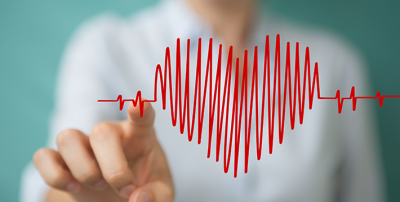
Though often used interchangeably, heart attack and cardiac arrest actually describe two different heart emergencies.
The heart care team with Lehigh Valley Heart and Vascular Institute breaks down what you should know about these emergency conditions so you can help yourself or someone you love. In either case, every moment is important and calling 911 is necessary.
Heart attack is a circulatory blockage
Q: What happens when an artery is blocked?
A: If blood flow to the heart is blocked, the heart is deprived of oxygen. Lack of oxygen results in damage to the heart muscle.
Symptoms of heart attack
A person who has a heart attack might experience these symptoms hours or even days before:
- Chest pain
- Fatigue
- Weakness
- Nausea
- Difficulty breathing
- Discomfort or pain in one or both arms, the back, neck, jaw or stomach
How to help a person who's having a heart attack
- Call 911
- Take or give the person aspirin (unless he or she has an allergy or a doctor directs you not to give aspirin)
Cardiac arrest is an electrical interruption that stops the heart
Q: Why does a heart stop beating?
A: The heart will stop beating when the electrical system of the heart suddenly stops or the body’s circulatory system fails.
Symptoms of cardiac arrest
A person in cardiac arrest might experience these symptoms just moments before it occurs:
- Collapse
- Unconscious
- Stop breathing
- No pulse
How to help someone who is in cardiac arrest
- Call 911
- Start hands-only CPR
- Use an automated external defibrillator (AED), if you have access to one. Follow directions on AED.

